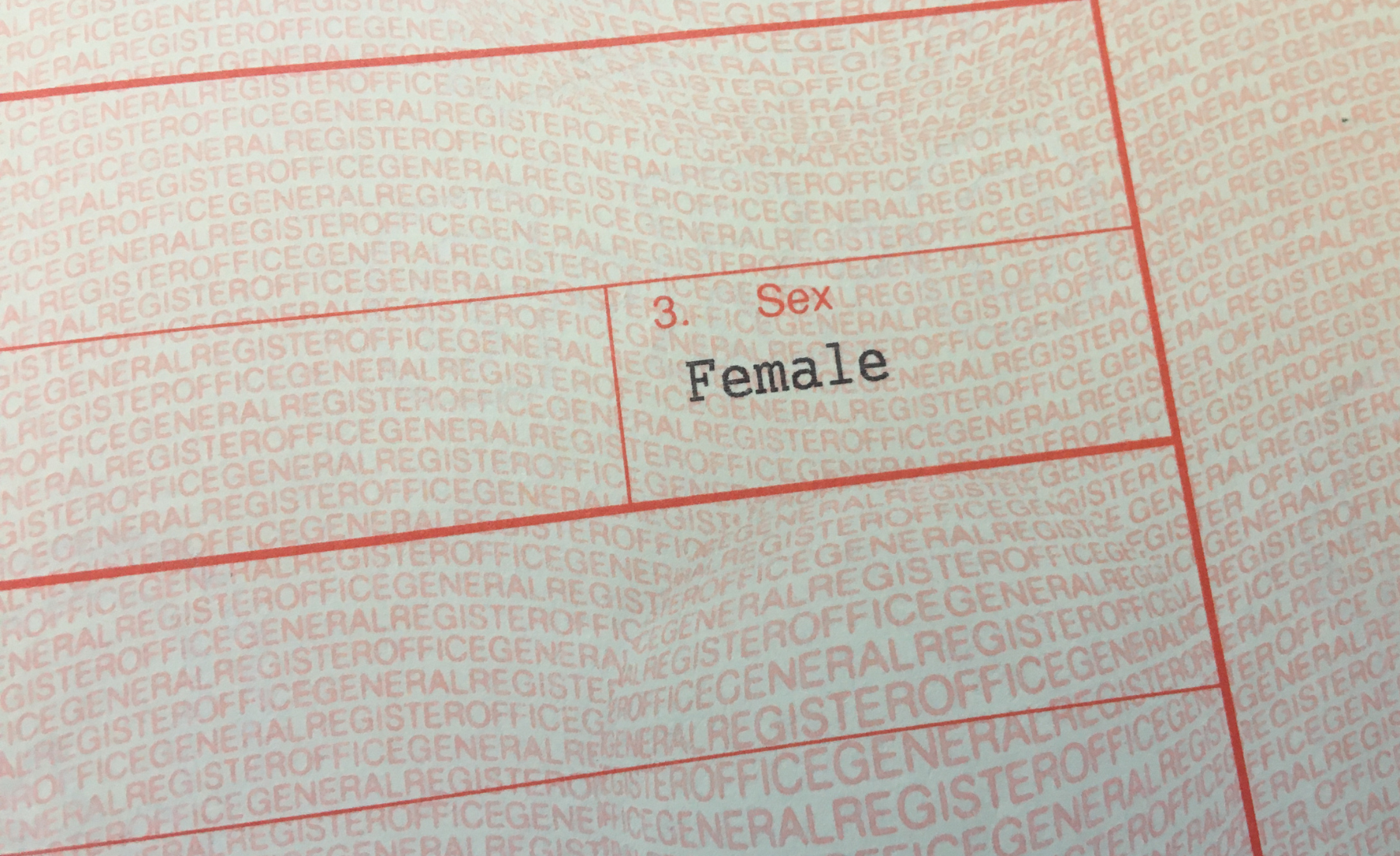Do I want the government to agree that I'm male?
Is legal recognition of my gender from a transphobic government worth the paper it's written on?

[CW: suicidal ideation and systemic transphobia]
About a week ago, I was filling out an online form which asked me to select my sex. I hesitated for a moment, because it was a form that would go to the city council, linked to my National Insurance number. While I know that my sex is male, my local authority wouldn’t necessarily agree.
And, unfortunately, them being wrong doesn’t mean that I’m not anxious that my application will be denied because my details don’t match up to the ones the government has on file.
I still put ‘male’, but the uncertainty stayed even after I submitted the form. Nowadays I usually answer that my gender or sex is male without a second thought. The majority of the time it simply doesn’t matter – and when it might, like at the sexual health clinic, where the kind of tests I need do (to an extent) depend on my anatomy, there’s usually enough space for nuance or to note that I’m trans.
But as far as the UK Government is concerned, ‘male’ isn’t my legal gender. In order to change that, I would need to apply for a Gender Recognition Certificate (GRC). This is the process through which trans people in the UK can apply to have our “affirmed gender” legally recognised. It’s a process that has been described by trans people and politicians alike as “deeply invasive, traumatising, unnecessary and dehumanising.”
To apply for a GRC, you need to have been diagnosed with gender dysphoria in the UK, been living in your affirmed gender for at least two years, and intend to live in this gender for the rest of your life. Proving this requires medical reports from at least two doctors, birth certificates, deed polls, and a thick sheaf of bank statements, rental agreements, utility bills, tax documents and payslips as “evidence” that you've lived in your gender for the last two years.
Once you've managed to jump through the necessary hoops to gather this evidence, it all gets sent to a panel of cis people who have never met you but still have the authority to “decide whether the application meets all the legal requirements.” Do you want to throw up yet?
Late last year, I got pretty far with the process of applying for a GRC. In fact, I got as far as realising I needed to sign a statutory declaration with a solicitor, Justice of the Peace, Legal Executive, or Notary Public as a witness. At the time, overwhelmed by Big Life Events and the sheer amount of admin involved, my GRC application slipped down my list of priorities.
A little over six months later, I still have that little pile of paperwork waiting for me to complete the last few steps. But I’m no longer entirely convinced that I should finish the process. After all, at this point in 2025, is legal recognition of my gender from a deeply transphobic government worth the paper it would be written on?*
A GRC would undoubtedly make some aspects of my life much easier. I could tick ‘male’ on official forms without worrying that someone is going to tell me off for doing it wrong. I could have a set of documents that all match – passport, birth certificate, all with the ‘M’ that accurately describes my gender. A sex marker and a name that not only affirm my gender but are far less incongruous with my current appearance.
I’m not naive enough to think that a GRC or a nice set of matching legal documents would protect me from transphobic harassment or the government’s anti-trans policies. In a year where legislation in the UK and the US have made it increasingly hard to access healthcare and even exist in public spaces as a trans person, would a GRC at least give me a level of mental security because I’ll have done everything I’m “supposed” to do to prove that I’m trans?
Ultimately, though, that’s the problem: I don't believe I should need to go through this process to have my gender legally recognised.
I do not believe the GRC process as it currently stands should exist. The Gender Recognition Act – the legislation that established the current GRC process – was world-leading when it was passed in 2004. More than two decades later, however, the UK has fallen to 22nd place on the ILGA-Europe’s Rainbow Map, which ranks countries based on their laws and policies affecting LGBTQ+ people. It’s the UK’s lowest ever position, having been ranked 1st in 2015, and it’s the lack of rights and protections for trans people that see us falling behind.
The current GRC process is outdated and inaccessible. It deliberately excludes non-binary people, who still cannot get legal recognition of their gender. Trans people have been repeatedly promised reforms to bring it in line with international best practice, only for such reforms to be abandoned or blocked by the UK Government. (I was actually watching in the Scottish Parliament when the Scottish Gender Recognition Reform Bill passed in 2022, and sometimes I can’t believe I’m applying for a GRC under this system rather than that one.)
I know applying for a GRC under this system doesn't make me complicit in it… except recently I’ve begun to worry that it would. Is seeking recognition from a transphobic government – with a Health Minister who has banned puberty blockers and a Women and Equalities Minister who has said trans women shouldn’t use women’s toilets – a betrayal of everything I believe in? Would I be letting down my trans siblings whose genders cannot be legally recognised?
And given the Supreme Court’s ruling in April, to what extent are the protections trans people should have under the Equality Act (2010) going to be stripped away, regardless of whether one has a GRC?
Unlike my younger self might have been, I’m not looking to the government to validate my gender because I’m insecure in my masculinity. I’m a man regardless of what anyone else says, regardless of what my documents say. Trans people get to determine our own genders, whether or not the state recognises that. And in a year where we are facing an unprecedented attack on our existence, it’s hard to see the indignity of the application process, of asking a panel of cisgender strangers to approve my gender, as worthy of my time and energy.
A piece of paper from the government doesn’t make me a man, but it would make it harder to ignore my masculinity. My skin crawls when I imagine my life being rewritten after I die to erase my transness – a GRC would surely make that harder. When I’m very, very suicidal, it’s the tiny ‘F’ they would put on my death certificate that keeps determined to stay alive. I want my gender and my sex to be recorded as male, in the same way I want it on the record that I am a bisexual fag, a queer transsexual. Trans people have always existed; one of the reasons I write is to make it as hard as I can for cishet people in positions of power to tell future generations the lies they're peddling now to erase queer and trans history.
I don’t need the government’s approval to prove that I’m a man… but I might apply for a GRC anyway.
*It’s worth pointing out that the UK Government website currently says: “The panel will usually look at your application within 22 weeks of applying.” – meaning that even if I sent in my application today, I’d get a response in late November at the earliest. Who knows what rights may have been snatched away from trans people by then?

Links to what I've been writing, reading, and generally getting excited about recently.
- Over at Gender Neutral Urinal Press, issue two of my of my mini erotica zine is out! A short filthy story that's only available as a physical zine, 'An inconvenient crush on your flatmate (and sucking her toes)' – perhaps unsurprisingly – explores foot fetishism. I hope I've managed to capture a little of why I'm into feet in a way that readers will find hot even if they're not.

I'm currently trying an experiment where I make these link round-ups available just to people who are subscribed. If you'd like to read the rest of this week's cruising the internet – full of links curated to encourage you to think differently about gender – you can subscribe below. Doing so is entirely free and your support helps me keep writing this newsletter.
If you are subscribed but still can't see the full link round-up below, please try signing in using the button in the top right of the header.

